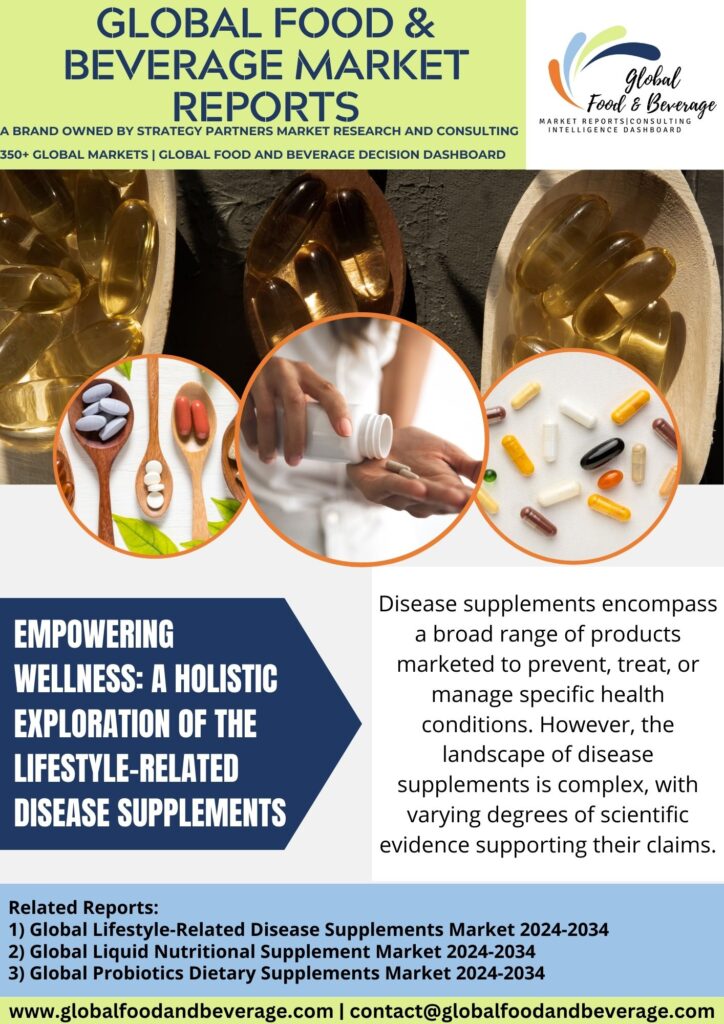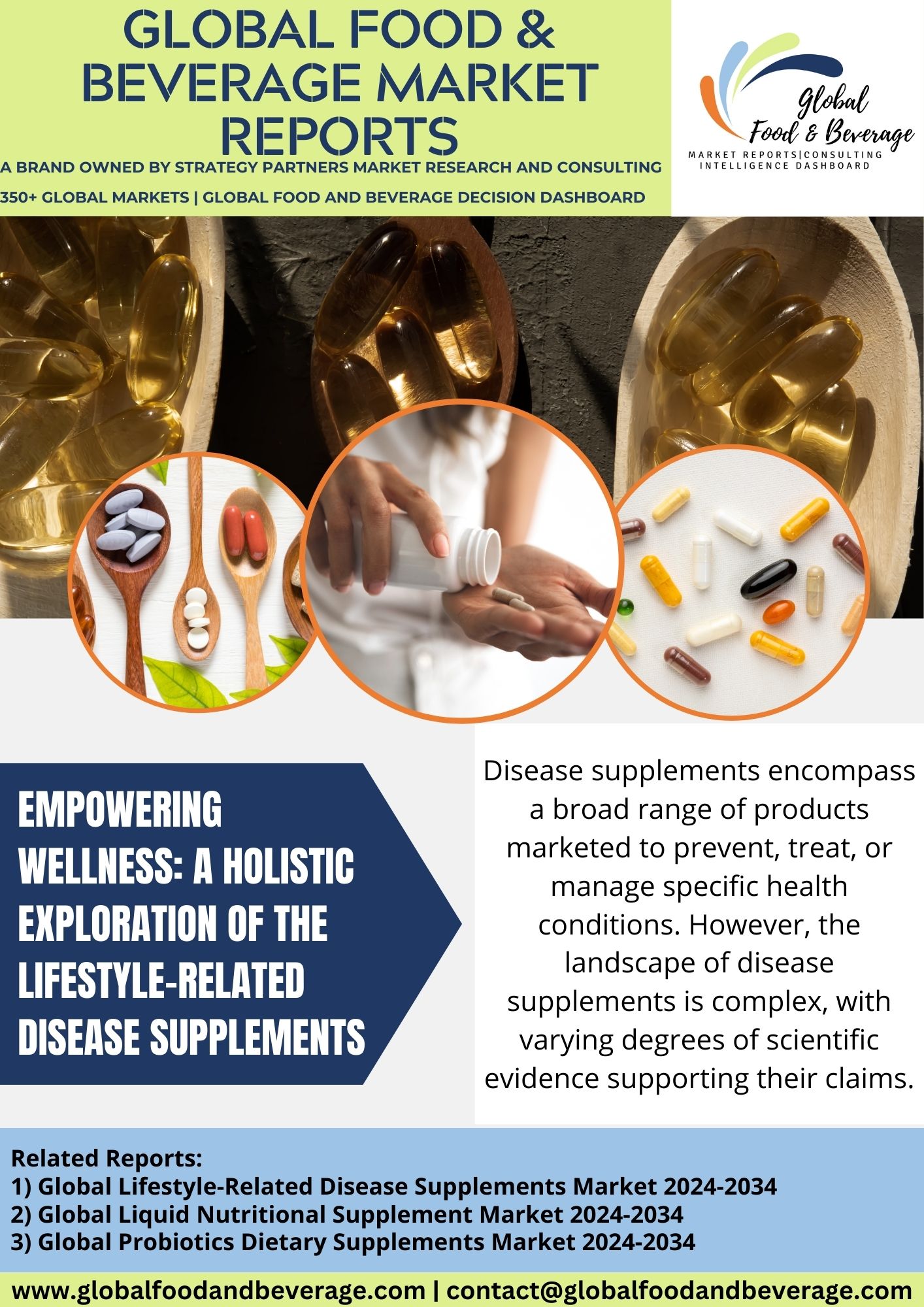
The prevalence of lifestyle-related diseases, including conditions such as heart disease, diabetes, and obesity, has prompted a growing interest in supplements designed to support overall health and well-being. These supplements are formulated to address nutritional gaps, promote specific health markers, and offer a convenient way to complement a balanced lifestyle. With dietary habits often falling short of providing essential nutrients, lifestyle-related disease supplements aim to bridge this gap by delivering key vitamins, minerals, and bioactive compounds that may be lacking in regular diets.
Common components of these supplements include omega-3 fatty acids, known for their heart-healthy properties, as well as vitamins like vitamin D, which plays a crucial role in bone health and immune function. Antioxidants, such as vitamin C and E, are often included for their potential to combat oxidative stress linked to chronic diseases. Additionally, minerals like magnesium and zinc are commonly found in these supplements, as they contribute to various physiological functions.
Supplements targeting lifestyle-related diseases often reflect evolving research on the role of nutrition in preventing and managing these conditions. For example, formulations may include ingredients like coenzyme Q10 (CoQ10), resveratrol, or turmeric extract, which have garnered attention for their potential cardiovascular and anti-inflammatory benefits. Probiotics, known for their role in gut health, are also frequently incorporated, recognizing the intricate connection between the gut microbiome and overall well-being.
While these supplements offer a convenient way to bolster nutrient intake, it is essential to approach them as part of a holistic approach to health. They are not intended to replace a balanced diet but rather to complement it, providing additional support for individuals seeking to optimize their well-being. As with any dietary regimen, consultation with healthcare professionals is advised to ensure that supplements align with individual health needs and do not interact adversely with other medications.
Lifestyle-related disease supplements represent a proactive approach to health management in the face of prevalent conditions influenced by modern living. By offering targeted nutritional support, these supplements contribute to the broader effort of adopting a balanced lifestyle that includes a nutritious diet, regular physical activity, and other healthy habits.
ADVANCEMENTS
Lifestyle-related disease supplements showcase a growing focus on preventive health measures and the development of targeted nutritional solutions to address the challenges associated with modern lifestyles. One significant breakthrough is the formulation of supplements tailored to specific lifestyle-related diseases. These conditions, including cardiovascular diseases, diabetes, and obesity, are often influenced by factors such as sedentary lifestyles, poor dietary habits, and stress. Advanced supplement formulations aim to provide key nutrients that support overall health and address specific deficiencies associated with these diseases.
The integration of personalized nutrition and precision medicine concepts is transforming the landscape of lifestyle-related disease supplements. Companies are leveraging genetic and biomarker information to tailor supplement regimens to individuals’ unique needs and genetic predispositions. This approach enhances the efficacy of supplements by addressing individual variations in nutrient requirements and metabolism.
Advancements in the use of innovative ingredients and delivery systems contribute to the effectiveness of lifestyle-related disease supplements. Ingredients such as bioavailable forms of vitamins, minerals, omega-3 fatty acids, and plant-based compounds are incorporated to optimize nutrient absorption and utilization. Novel delivery methods, such as nanoencapsulation and microencapsulation, enhance the stability and bioavailability of sensitive nutrients.
The incorporation of technology into supplement regimes is notable. Mobile apps, wearables, and digital platforms are utilized to monitor and track lifestyle factors, dietary habits, and health metrics. This data-driven approach enables personalized recommendations and adjustments to supplement regimens based on real-time health information.
Research on the role of nutraceuticals and botanical extracts in preventing and managing lifestyle-related diseases is expanding. Scientific studies provide insights into the potential benefits of supplements in mitigating inflammation, improving metabolic health, and supporting cardiovascular function.
CHALLENGES
Supplements targeted at lifestyle-related diseases face challenges related to efficacy, consumer education, regulatory compliance, market dynamics, and ethical considerations. One significant challenge is the scientific validation of supplement efficacy in preventing or managing lifestyle-related diseases. The complex nature of these conditions and the need for robust clinical evidence pose challenges in demonstrating the effectiveness of supplements, leading to skepticism among consumers.
Consumer education is vital for promoting the benefits and appropriate use of lifestyle-related disease supplements. Misinformation and lack of awareness about the limitations and potential side effects of supplements contribute to challenges in building consumer trust and adherence to recommended doses.
Regulatory compliance is a complex challenge in the supplements industry, especially concerning health claims, labeling requirements, and safety standards. Ensuring that supplements meet diverse and evolving regulations across regions or countries demands continuous diligence and adaptability to varying standards.
Market dynamics, including the saturation of the supplement market and the influx of new products, contribute to challenges in differentiating and promoting lifestyle-related disease supplements. Successfully navigating market competition requires innovative formulations, strategic marketing, and a focus on transparent communication.
Ethical considerations are essential in the development and marketing of supplements targeting lifestyle-related diseases. Maintaining integrity in advertising, avoiding false claims, and prioritizing consumer safety and well-being are crucial for the credibility and sustainability of the supplement industry.
CONCLUSION
Lifestyle-related disease supplements epitomize a proactive approach to health in an era where chronic conditions are prevalent. From cardiovascular support to immune enhancement, these supplements offer targeted solutions aligned with modern lifestyles. The industry’s commitment to research, quality formulations, and transparent labeling mirrors a dedication to holistic well-being. As global awareness of preventive health measures grows, these supplements stand at the forefront. The future promises continued innovation, personalized formulations, and a symbiotic relationship between science and self-care, fostering a landscape where lifestyle-related disease supplements play an integral role in empowering individuals to take charge of their health and embark on a resilient journey towards well-being.
